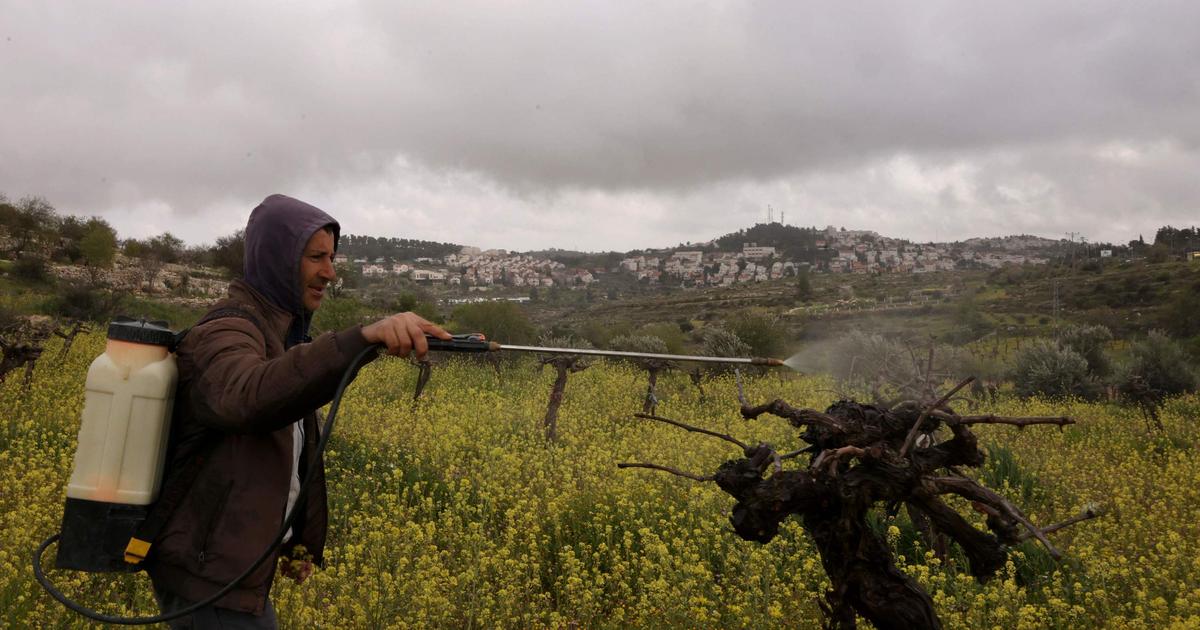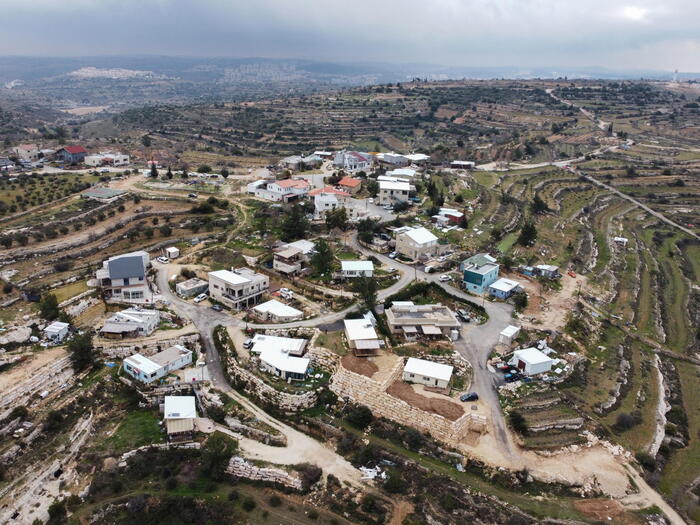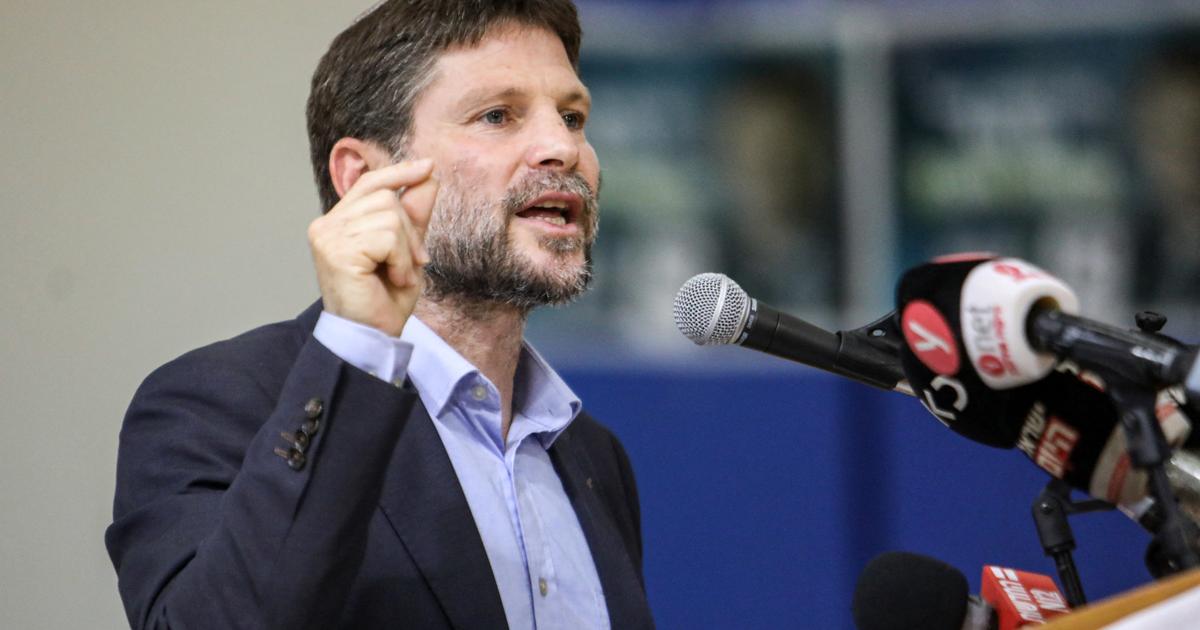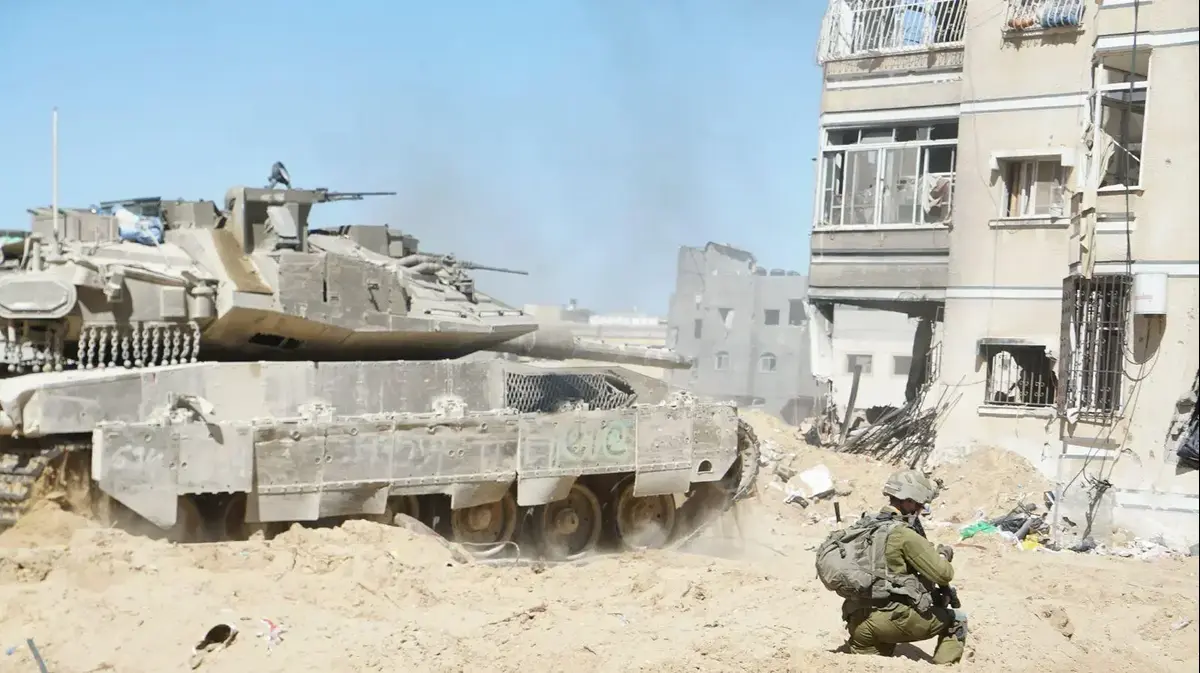The desolation of the Bedouin village of Um al Jair, a tin shanty town south of Hebron, collides seamlessly with the red-tiled houses of the Karmel settlement, separated only by a chain link fence.
Palestinian herders bought their land in 1948, fresh from the Negev desert after being driven out by the nascent Hebrew state.
Jewish settlers founded the
moshav
(cooperative farm) in 1980 on land expropriated from the Bedouin.
Um al Jair has barely a hundred residents who cannot even build a corral on pain of demolition by Israeli troops.
Karmel has expanded like an oasis in the Judean desert to 450 inhabitants.
"The Army declared this region a shooting area and left us without pasture for cattle," lamented the Bedouin pedo mayor Bilal Abalib, 36, during the visit last week by representatives of a dozen countries of the European Union, in an unusual joint mobilization in the face of the imminence of new demolitions of Palestinian properties.
With almost two months to go, 2020 has already broken records for the expansion of Israeli settlements in almost a decade.
The military authorities managing the occupation of the West Bank have given the green light for the construction and promotion of 12,159 new homes for settlers so far this year.
The brand surpasses the bar set in 2012 (11,159 houses), when the Israeli NGO Peace Now began monitoring and accounting for the expansion of the colonies.
Compared to the 2,613 new homes in 2016, the last year of the administration of Democratic President Barack Obama, the arrival of Donald Trump to the White House was close to tripling urban development in occupied territory in 2017.
As the Republican's term seems to be coming to an end, Israel has picked up the pace with the promotion of nearly 5,000 houses in mid-October.
"This decision represents a peak in the era of Trump, in which construction activity has increased radically," says a statement from Paz Now.
"The US government has exerted less pressure since 2017 to halt settlement expansion while Israeli politicians have pushed it forward."
The American ambassador to Israel, David Friedman, an Orthodox Jew and real estate attorney for Trump's companies, was also known for his unconditional support for the settlers before taking office.
Along with Netanyahu, Friedman on Wednesday staged in the Ariel settlement the extension of US funding to Israeli activities in the occupied Palestinian territories, which for decades has been vetoed by Washington.
In one of the last decisions of his presidency, Obama had withdrawn the shield of the US veto that protects Israel in the UN Security Council, which in December 2016 condemned all the settlements as “illegal” in resolution 2334, approved with the unanimous vote of the rest of its members.
Since 1967, more than 400,000 Israelis have settled in the West Bank and another 200,000 in East Jerusalem.
In the Masafer Yata district, in the barren hills of southern Hebron, 1,000 inhabitants from a dozen villages were forcibly displaced in 1999 to allow the construction of a 3,000-hectare military maneuvering range.
The Israeli Supreme Court suspended the collective eviction and allowed his provisional return, although since then the Bedouin have lived in legal limbo, amid constant demolitions of their buildings, many of which have been erected thanks to international cooperation.
Sven Kühn von Burgsdorff, head of the EU mission for Palestine, warned during his visit to a school in Jirbert al Markaz, capital of this desert border, that “the demolitions and the displacement of vulnerable populations by Israel may mean a violation of its obligations as an occupying power under international humanitarian law ”.
It remains to be seen what the reaction of Brussels and the European countries will be if the threat hanging over this Palestinian area is consummated.
Eight months have passed since the previous expansion of the Jewish colonies in the West Bank.
Following the presentation of the White House peace plan for the Middle East, the Government of Prime Minister Benjamin Netanyahu suspended its plans to play the card of annexing 30% of the territory of the West Bank, an option provided in the baptized by the Trump himself as the "deal of the century."
Following the normalization of relations between Israel and the United Arab Emirates, however, the application of Israeli sovereignty to all Jewish colonies and the Jordan Valley has been suspended.
“Although the
de jure
annexation
is paralyzed, the
de facto
annexation
continues with the expansion of the settlements,” concludes Paz Now, a pacifist organization founded by the Israeli writer Amos Oz.
Since the signing of the Oslo Accords, the presence of Israelis in the West Bank has doubled every decade.
It went from 110,000 in 1993 to 200,000 in 2001 and 291,000 in 2008. After Netanyahu's long decade in power, the bar of 420,000 settlers was surpassed last year, although more and more buildings have been located in isolated areas in the inside the Palestinian territory.
Under permanent fear of eviction
"We live in permanent fear of being evicted," Nidal Yunes, mayor of the West Bank district of Masafer Yata, told diplomats, journalists and aid workers.
The Army prevents them from building or maintaining their facilities.
"Out of moral responsibility we will continue to help this community," promised the head of the EU representation, "although it would be up to Israel to take care of these people as an occupying power."
"Declaring a sector as a shooting area or military compound is a common pretext to expel the Palestinian population from a part of the West Bank," says Hagai Elad, director of the Israeli peace NGO B'Tselem.
The next step is to later cede part of the territory to settler organizations to build settlements.
The UN coordinator for the Middle East, Nickolay Mladenov, on Monday brought to the United Nations Security Council international concern about the rapid expansion of settlements.
"Eighty-five percent of these settler housing would be located in peripheral locations in the West Bank," he warned, "in areas that impede the territorial contiguity of a future Palestinian state."

/cloudfront-eu-central-1.images.arcpublishing.com/prisa/C45SNW3LRZFBDFCJQBSZNKWIEU.jpg)





